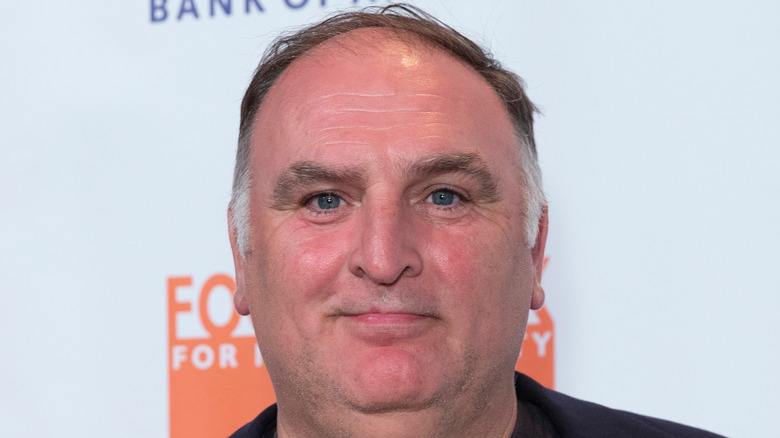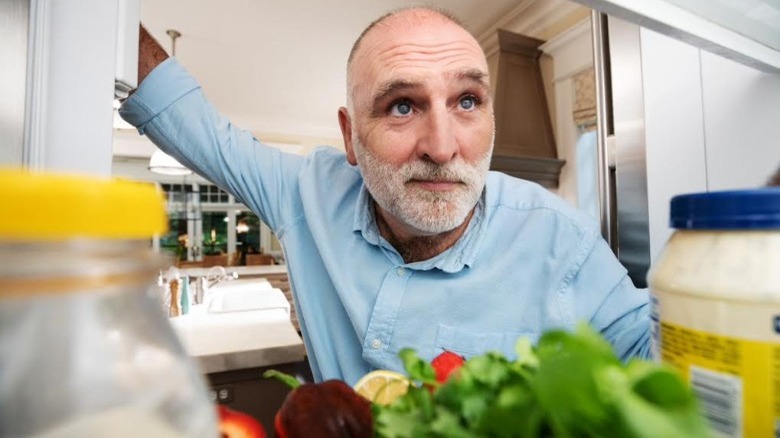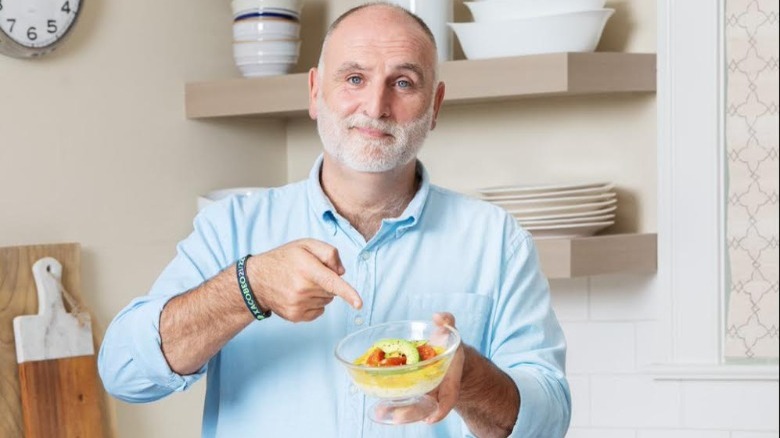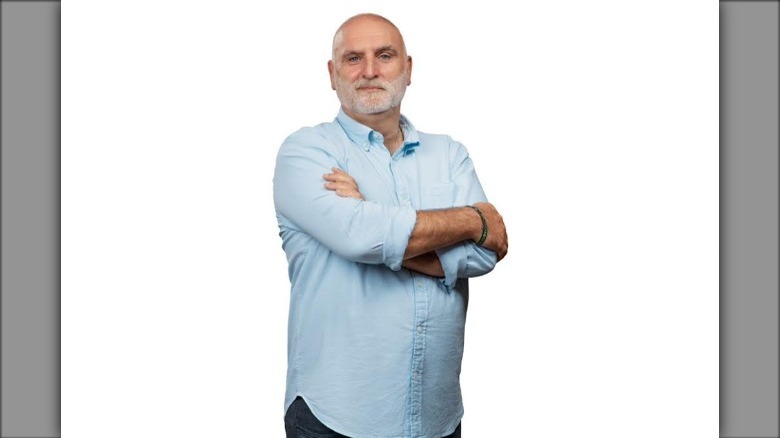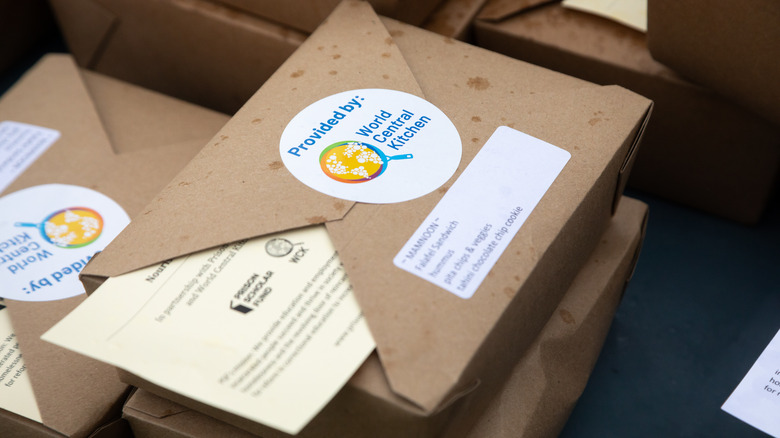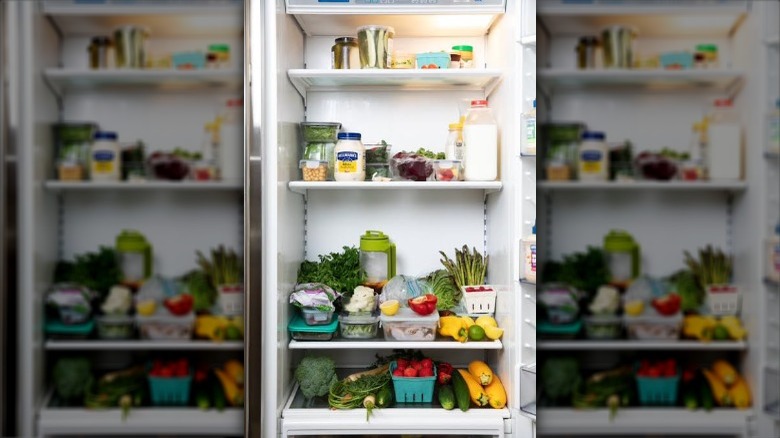José Andrés Gets Real About Food Waste - Exclusive Interview
At some point or other, everyone has likely tossed something straight from their fridge to the trash can. Whether it was expired produce, an old jar of olives or even leftovers, almost everyone has contributed to food waste somewhere along the way. That's why Hellmann's mayonnaise has partnered with world-renowned Chef José Andrés to try to save one million meals through their new campaign: Fridge Hunters. The campaign, which points out that 40% of all food waste in the U.S. happens at home, is part of a larger commitment by Unilever to help achieve the UN's Sustainable Development Goal of reducing food waste by 50% by 2030. With Chef Andrés, Hellmann's is showing Americans how fridge hunting can help reduce food waste with a little inspiration, recipes from Andrés and a touch of mayonnaise.
"We can start reducing food waste before it even happens. The answer is right in front of our very eyes," said Chef Andrés. That's why Andrés created "flexipes" with Hellmann's to help people think differently about how they can use leftover ingredients in their fridge. While the formula is a simple mix-and-match combination of veggies, protein, and a bit of Hellmann's, Andrés also sat down with Mashed to discuss recipes and why reducing food waste is so important.
As part of the campaign, people can also enter the Fridge Hunters Sweepstakes beginning October 14th through October 24th via the website or by posting their fridge hunting successes with #fridgehunters, #sweepstakes, and tagging @Hellmannsmayonnaise on Instagram and TikTok. Three entries will be randomly selected for one-on-one virtual fridge hunting sessions with Chef Andrés, where each winner will explore their fridge, learn how to make the most of the ingredients they have on hand, and create something surprising and delicious! Each sweepstakes entry and social media post will count towards Hellmann's goal of saving one million meals in North America.
Chef José Andrés on his work with Hellmann's
Chef Andres, can you tell us a little bit about your partnership with Hellmann's?
Well, Hellmann's approached me to ask me if I will join them and to try to transform a problem into a solution and an opportunity. That issue is that today 40% of the food that we waste in the United States happens right at home. This has a lot of repercussions. Hardworking families, where every dollar counts, and without realizing we keep throwing, sometimes, food into the garbage can, when we should be putting that money at the service of feeding our family or saving it and using it in education or something else. This was very brilliant in the sense that we know food waste is a big issue, not only in America, but worldwide. By fighting food waste, there are many things we fight at the same time, from climate change to CO2, obviously CO2 emissions, obviously home economies.
For me to see that Hellmann's wanted me to be a spokesperson for something that I've been doing, directly and indirectly, all my life, which is, "Can we try to save one million meals right in the comfort of your home, by fridge hunting." I think it's something that is growing on me, which is fascinating; that you open the fridge and you make your trip to your fridge into a fascinating moment of your day. I think it's such a simple idea, that sometimes the simple idea is what becomes powerful.
The reality is that in every fridge in America, we have a lot of things that they've been sitting there around and they can be used to prepare the next meal when you think you have nothing. With that, we can all be part of something bigger. Obviously, I know Hellmann's has been very involved, trying to help on the UN development goals for the year 2030, which I've been also very active. Food waste is one of them, but this is one that everybody can do at home. This is one that everybody can reach within their fridge and be part of the solution.
Chef Andrés on making the most of leftovers
Can you share how readers can make the most of what's left in their fridge?
The number one is, like everything in life, it's the boots on the ground and the willingness to do it. The only thing you need to do is just open your fridge. Once you've done that, you've done the most difficult part. Then you think you are going on the ride, you are going into this amazing Alice in Wonderland ride that you start going through, bring your children, bring your friends.
Then start saying, "Okay, what do we find here?" Yes, it's small, it's there. Then you're going to start thinking like you have the half tomato that isn't used put aside and a quarter of avocado that is getting already dark, and a quarter lemon. On the bottom is Hellmann's mayonnaise that looks like it is empty. You bring those ingredients out, and in the same bottle of the mayonnaise you add some olive oil and you add some vinegar and you had some capers and they've been sitting there forever, and you put the capers in and you go and you start shaking it like it's a cocktail. Right there, you are making a dressing that is going to be slightly broken creamy, where the capers are going to help you to just move any sides of the mayonnaise in the bottle. You have a great dressing right there.
You go and you take the avocado, you put it on the plate, the tomato, you chop it and you put it on the plate. Maybe you have one endive left. Maybe you have a piece of tuna leftover. You put it on there, you pass the dressing on both. You made a salad right there.
You can use creativity, that you can make sure that when you say it's nothing left in the refrigerator, that means you're going to get in a car and you're going to be going to the supermarket. You can, by opening the fridge, just making sure that you keep staying at home, that you enjoy yourself, that you don't put more CO2 in the world, that you save money by using what you have left.
José Andrés on Waffles+Mochi
It really reminds us of "Waffles + Mochi" and how it's this grand adventure of learning about food. Could tell us a little bit about your experience working on that show?
Well, "Waffles + Mochi," I think was a great show in the right moment and a show that we waited too long for it. In the same way, we saw the impact that something like "Sesame Street" did in many of us. I remember growing up and it had an influence on me.
I think the show is what children of the world needed, but also the grownups. We still have two creatures that are beautiful, that they want to learn more, that they are saying, "We are happy here, but we want to see what is out there. We want to search and we want to learn, and we want to understand the foods that are in other parts of the world and know more about them and ask questions, and whatever information we receive, we process, and on our own, we make decisions."
I think that search of understanding what every vegetable, what every person, what every recipe, this story that those dishes have to tell us, I think, is fascinating. For me, it was obviously I've been talking for many, many, many years, that vegetables speak to you, that ingredients speak to you. Many people made fun of me over the years. For me, to say that that show was about very much ingredients speaking to us, was great for me be on the first and the last show. It was very special.
I'm very thankful to the Obama's, obviously for inviting me, but more importantly, for taking [the] initiative of making that show happen. That show is going to be having a very important mark. I hope it will be soon, season two, as this campaign that does for everybody, every action is going to come from the TV show, like "Mochi + Waffles," to this campaign of Hellmann's mayonnaise. It takes a village to make change and to make a dent in the problems we have. But once you are able to get into that, then you can have real success.
I think sending to the kids in America, but more important, people around the world [the message], that we need to know more about the foods we eat and the foods we consume and make it fun and make it educational, at the same time. I think this is a big win.
Chef Andrés on World Central Kitchen
Can you speak to World Central Kitchen?
Well, obviously the perception is that we see more and more events happening. When I was in the kitchen, we had so many, even when we were smaller and we would not react to everything. Now, we went from the organization that people were very surprised we were there, but very thankful we showed up because we were playing an important role, to now, that if we don't show up, people are, "Where are they?"
This comes with a big responsibility on the shoulders of the men and women of World Central Kitchen. Obviously things like volcanoes and earthquakes, there's not much we can do. It's part of the creation of the universe. When that happens, it's very harmful because a lot of people suffer, but at the same time, it's what created the planet we are sitting on. This tells us the message that the universe, and especially now our planet, is something we need to take seriously because we cannot control the earthquakes and we cannot control the volcanoes, but these are the things we can help control a little bit.
Some people will argue that in the history of Earth, we had different fluctuations of temperature. If this happens, that may be it, and hopefully humans, we will learn more and more. But the things that we are able to control, we should do everything we can to control it.
Even if somebody is skeptical about it, well, you have nothing to lose because if something happens, if it's not us and the planet is getting hot, we're in trouble. But if it's us and we can help keep it colder, why we should not do it?
José Andrés on the impact of climate change on food resources
How do you think climate change is going to impact how you do work with the local environments?
But then we are seeing droughts. We are seeing places that they're underwater, too much of it, or too little of it. Those are directly influenced by climate change. That's not the direct damage they do, it's indirect. We're going to be seeing some of the biggest migrations in the history of the world because we are seven billion going to eight, going to nine. If places on Earth get difficult to live in because there's too much water or too little, because of too many hurricanes or too many tornadoes, the migrations we are going to be seeing are huge.
Because there is going to be drought, and because there is going to be flats in many parts of the world, we are going to see, we are going to see that political instability is going to be happening, where people and countries are going to be fighting for resources, for food and for water. Then on top of everything, climate change indirectly is going to be making conflicts more often.
It becomes, all of a sudden, impossible. Let's make sure that by doing something so simple as trying to save a million meals, and it may seem absurd, it may seem little, but every piece is going to count. If we bring consciousness to everybody, I believe the biggest form of democracy is what's on your plate. If we all want a better world, the plate, and the way you eat, is a great way to start achieving that.
Be sure to visit Hellmann's to learn how to make the most out of what's in your fridge and enter the Fridge Hunters Sweepstakes. And keep up with José Andrés by following him on Instagram.
